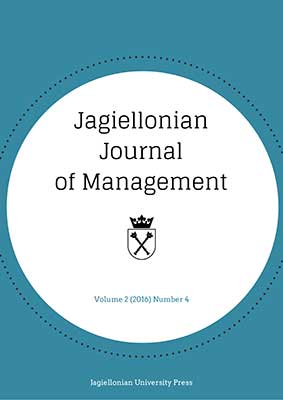Praxeological ethics as an element of organizational culture of functionals of the Near-Oder Boarder Guard Unit
Praxeological ethics as an element of organizational culture of functionals of the Near-Oder Boarder Guard Unit
Author(s): Lilla MłodzikSubject(s): Business Economy / Management, Security and defense, Social Norms / Social Control, Business Ethics
Published by: Wydawnictwo Uniwersytetu Jagiellońskiego
Keywords: praxeological ethics; organizational culture; cooperation; service ethos; border guard;
Summary/Abstract: Border Guards play an important role in Poland’s security system, protecting its borders. For this purpose it needs to cooperates with the environment. Its areas cover many aspects in which organizational and interorganizational relationships are required. The basis of the mentioned relations are organizational and legal conditions, but their development are among others elements of organizational culture. It constitutes, according to the author, a collection of values, norms, attitudes, beliefs shared by the officers about the necessity of interaction and cooperation that define their behaviour, generate and increase cooperative competences and reinforce the sense of identity and professional community in achieving goals. In the praxeological ethics approach proposed in the article, the actions of Border Guards are inextricably connected with ethical principles considered in terms of professional roles. Ethical-oriented management should constitute a source of cooperative advantage leading to a more efficient achievement of goals. It is based on the premise of creating relationships, whose rationale is the preference for joint actions in the public interest and for the common good. This paper makes a difficult, due to the character of the problem, often based on unconsciousness of behaviour, attempt to investigate the dependence of the mentioned variables – effectiveness of cooperation and principles of professional ethics. The following research techniques were used in the quasi-comparative method: questionnaires, document analyses, casual interviews, unclassified observations and shadowing. For the surveyed whose knowledge and adherence to ethical principles is important in the group in practice, the degree of achievement of goals increases, but to a certain point.
Journal: Jagiellonian Journal of Management
- Issue Year: 3/2017
- Issue No: 2
- Page Range: 93-106
- Page Count: 14
- Language: English

